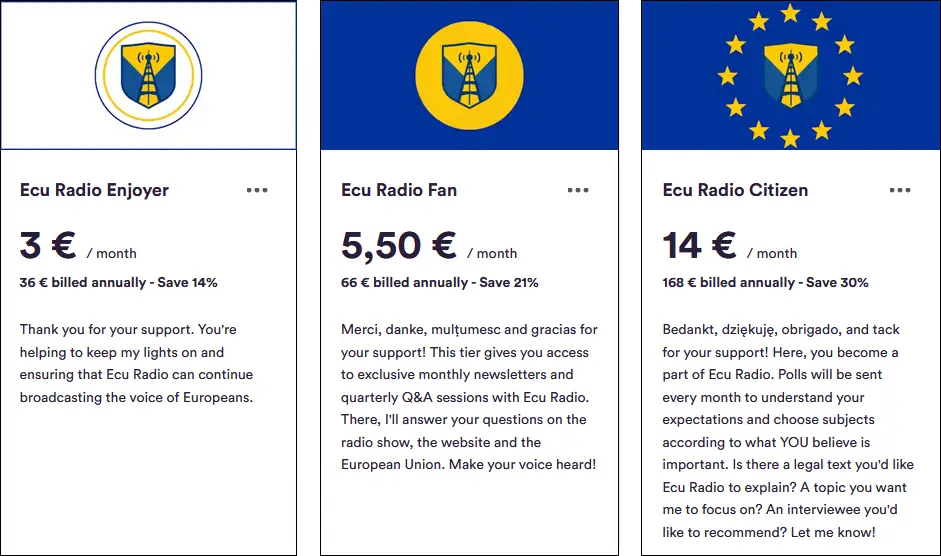The Eurosceptic Surge: Why It Matters for Europe's Future
Introduced by The Times in 1985, the term “Euroscepticism” refers to a critical stance toward the European Union (EU) and its supranational integration policies.
Surging since 2012, it is a challenge the European Union found itself unable to effectively address. Let’s see to understand why.

Defining Euroscepticism
Euroscepticism can be understood as a spectrum[1]:
Hard Euroscepticism, or “Europhobia,” involves opposition to the EU itself. Parties in this category advocate for their countries to withdraw from the EU or significantly reduce its powers, often favoring a return to a mere Single Market. In the European Parliament, this perspective is currently represented by the “Europe of Sovereign Nations” (ESN) group, which holds 25 out of 720 seats (3.5%)[2].
Soft Euroscepticism, or “Eurorealism,” does not oppose the EU’s existence but raises concerns about specific policies or directions that may conflict with national interests, such as deeper integration or the centralization of power in Brussels. While critical of the status quo, these parties do not advocate leaving the EU. The European Conservatives and Reformists Group (ECR) and the Patriots for Europe (PfE), with 78 (10.8%) and 84 (11.7%) MEPs respectively, represent this stance[2].
Ultimately, Euroscepticism can be seen as a tension between national and continental interests.
Understanding Euroscepticism
With 187 Eurosceptic MEPs (26%) elected in 2024, Euroscepticism has reached its highest level since European elections began. In comparison, Eurosceptic MEPs accounted for 16.7% of the Parliament in 2019, 20.7% in 2014, and 11.5% in 2009. This rise is driven by various factors, according to the European Commission’s paper on “The geography of EU discontent and the regional development trap”[3]:
Cultural and Economic Factors: Difficulties adapting to a changing world, prolonged economic and demographic declines, and misunderstood green and digital transitions contribute to discontent. These issues foster support for Eurosceptic parties that address such concerns.
Regional Development Trap: Regions that have lost economic dynamism compared to national and European peers exhibit Euroscepticism. Previously prosperous regions now facing stagnation or decline have frustrated citizens seeking change.
This regional development trap is a core aspect of current Euroscepticism, away from legacy concerns such as national sovereignty or unelected technocrats having too much power. Constituents of Eurosceptic parties were deeply affected by the 2008 financial crisis and the subsequent Euro area crisis, which led to austerity measures in countries like Portugal, Italy, Greece, and Spain, often described by the derogatory acronym PIGS. Pushed by countries with more robust economies, the EU was seen as their extension, giving them power to control and punish, threatening national sovereignty and democracy and pushing neoliberal policies against their will.
Additional concerns, such as migration crises and the EU’s response to the COVID-19 pandemic, have further fueled Euroscepticism, giving leverage to anti-EU platforms.
Although the concerns raised are valid, Euroscepticism’s proposed solutions are misguided and fail to offer the real change people desperately need to improve their lives.
Challenging Euroscepticism
In today’s globalized world, power is concentrated among giants—whether in military strength, population, size, or economic might. While Germany and France could independently assert themselves on the global stage, their voices would likely be drowned out if they stood alone.
The EU’s Single Market, its normative power, and its robust economy, bolstered by mutualized loans from the European Central Bank and defended by a unified currency, are strengths that individual European nations simply cannot achieve alone. Beyond economy, it also provides a supplementary layer of protection for democracy and human rights that help to safeguard the values and freedoms that define societies worth living in.
These advantages, built upon decades of hard work, must not be squandered, as answering the economic stagnation of local economies with political and institutional stagnation (if not dismantlement) of the continent is not viable.
In a world that demands constant evolution to effectively protect European citizens, choosing to diminish or discard the institutions and guidelines that provide us with negotiating power, lasting peace, prosperity, and freedom of movement is a recipe for failure. Such a choice would leave Member States vulnerable to corruption, the influence of foreign entities with hard power, and the capricious whims of authoritarian politicians.
Ecu Radio's Stance
Ecu Radio is a staunch adversary of Euroscepticism, as it is synonymous of stagnation at best, recession at worse. There is no value or interest in propping a perceived version of a golden past or staying the same in an ever changing world. The future of European citizens is in unity and progress.
Sources
[1] The Party Politics of Euroscepticism in EU Member and Candidate State, Taggart & Szczerbiak, 2002 [PDF]
[2] Election Results – European Commission, 2023
[3] The development trap: a cause of Euroscepticism? – European Commission, 2023 [PDF]
Ecu Radio needs your support
Ecu Radio is an independent news website and podcast show, run full-time by a single dedicated contributor (for now). Support our work, get exclusive perks and help keep us going, starting from only 3€ per month. Let's unleash Europe's potential together!
Click here to support Ecu Radio

